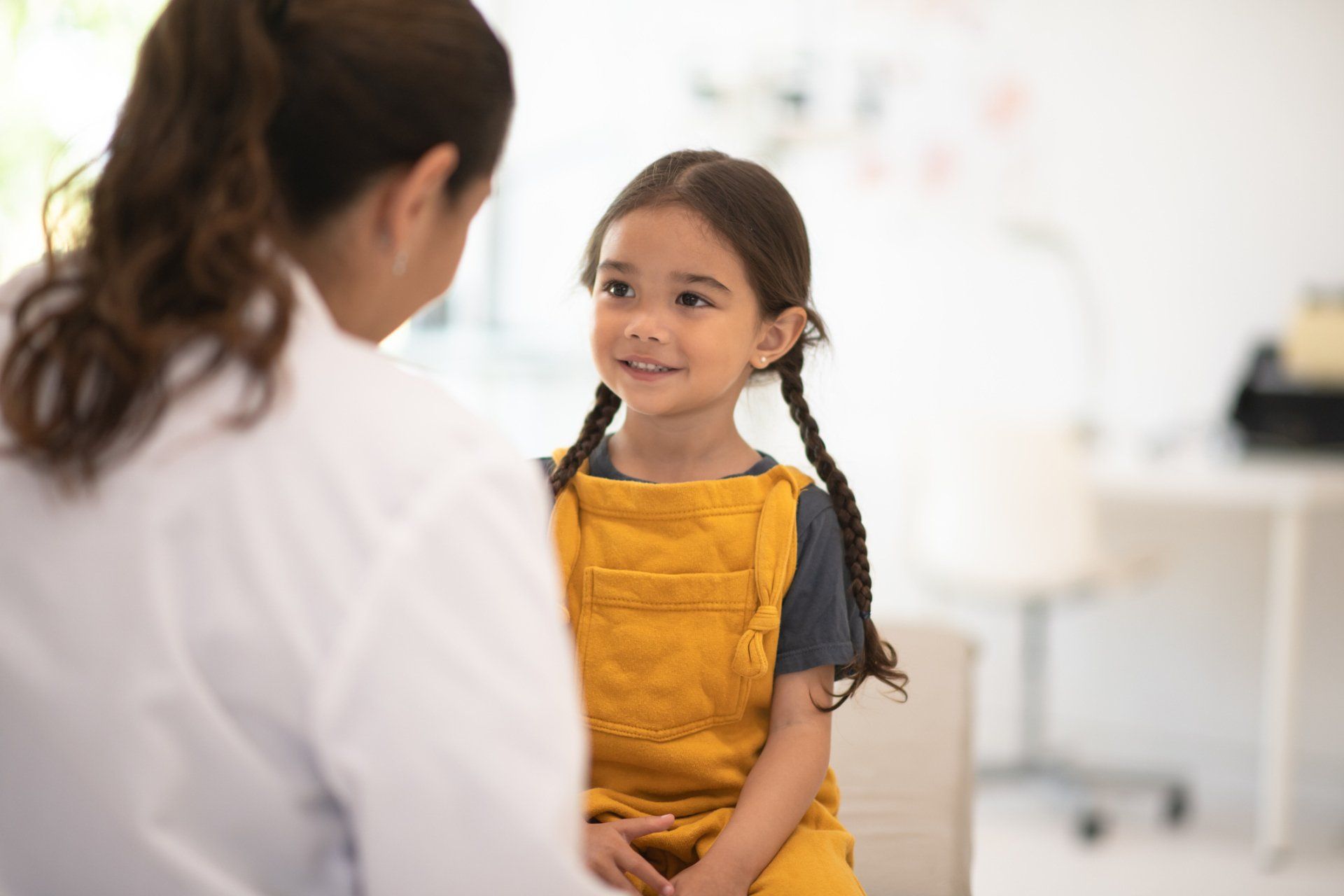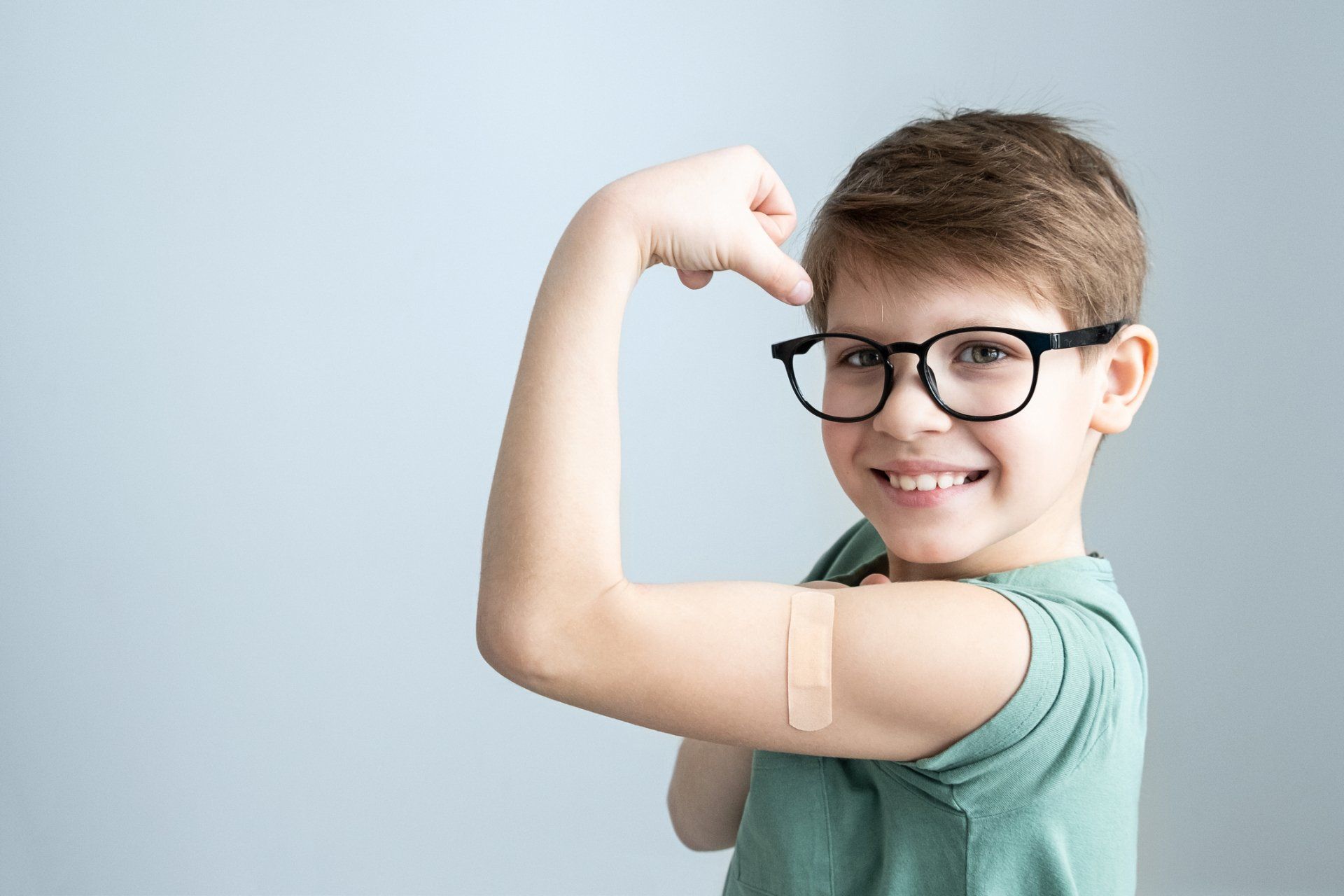Tylenol (Acetaminopfen)
We know that recent news reports may have raised questions about Acetaminophen (Tylenol) and safety. After some review of the reports, we feel that Acetaminophen remains a safe medicine for children when used appropriately for reducing fever and pain.
We have always recommended that Acetaminophen can be used when children are uncomfortable with higher fevers or pain. Low grade fevers do not require treatment, since fever itself is the body's natural response to infection.
THE RSV VACCINE
Respiratory Syncytial Virus (RSV) is the most common virus causing bronchiolitis (inflammation of the small airways in the lungs) and pneumonia (infection of the lungs) in children younger than 1 year of age. Please call our office or request an appointment through our portal.
THE FLU VACCINE
The Flu vaccine will be available/offered at all scheduled visits on the Well Side of the office starting at the end of September 2025. The Flu vaccine will also be available at separately scheduled "nurse visits" starting October-November. Please call our office or request an appointment through our portal.
THE LATEST INFORMATION ON COVID-19
Erie County FAQ and Answers about COVID-19
CDC COVID-19 Frequently Asked Questions
What is COVID-19? Coronavirus disease 2019 (COVID-19) is a respiratory illness that can spread from person to person. The virus that causes COVID-19 is a novel coronavirus that was first identified during an investigation into an outbreak in Wuhan, China.
How does COVID-19 spread? The virus is thought to spread mainly between people who are in close contact with one another (within about 6 feet) through respiratory droplets produced when an infected person coughs or sneezes. It also may be possible that a person can get COVID-19 by touching a surface or object that has the virus on it and then touching their own mouth, nose, or possibly their eyes.
What are the symptoms of COVID-19? Patients with COVID-19 have had mild to severe respiratory illness with symptoms of fever, cough, shortness of breath.
What are severe complications from this virus? Some patients have pneumonia in both lungs, multi-organ failure and in some cases death.
The best way to prevent infection is to avoid being exposed to this virus. However you should follow these everyday actions to help prevent the spread of respiratory viruses.
- Wash your hands often with soap and water for at least 20 seconds. If soap and water are not available, use an alcohol-based hand sanitizer. The CDC has resources for handwashing education materials.
- Avoid touching your eyes, nose, and mouth with unwashed hands.
- Avoid close contact with people who are sick.
- Cover your cough or sneeze with a tissue, then throw the tissue in the trash. If you do not have a tissue use your elbow not your hands.
- Clean and disinfect frequently touched objects and surfaces.
What do I do if I get symptoms of COVID-19?
- First, call your primary care provider and explain your symptoms and any recent travel history or close contact with someone who has.
- Before seeking health care call ahead to the facility and tell them your situation. They will give you instructions on how to get care without exposing other people to your illness.
- Avoid close contact with people who are sick.
- Stay home when you are sick.
- Cover your cough or sneeze with a tissue, then throw the tissue in the trash. If you do not have a tissue use your elbow not your hands.
- Clean and disinfect frequently touched objects and surfaces.
PROTECTING OUR CHILDREN FROM CORONAVIRUS
- REVIEW the CDC & Erie County Department of Health GUIDELINES.
- HIGH IMPORTANCE: Avoid touching common surfaces without washing hands before and after touching the surfaces (door handles, phones, pens/pencils, refrigerators, faucets, etc.)
- MASKS are beneficial, but there is Good and Bad if we touch the mask frequently. It is best to wear a mask if crowded indoors, or when outdoors in close proximity to others.
- SPREADING DISEASE: Previous research (on other viruses) suggests that crowded schools and all children 2 - 5 years old, can be very instrumental in disease spread.
- PHYSICAL DISTANCING: It is very helpful in avoiding spread to high risk people; but other close family can interact, if observing guidelines.
- CHILDREN have been largely spared from serious illness, but there are rare cases of serious outcomes.
- TESTS AND TREATMENTS: Great Success is on the way and while no one can predict the future, it is likely brighter than reported.
- NEWSPAPERS, TV STATIONS, INTERNET: Many are overly negative and provide information that is incorrect. Therefore, please call if there are questions, after reviewing guidelines.
For more information, or to schedule an appointment, call us at 716-893-7337.
















